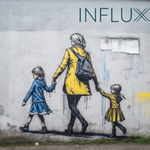NordForsk Interview: New Strategies Needed for Integrating Young Ukrainian Refugees
In a recent interview conducted by NordForsk, researchers Professors Anna Lund and Mervi Kaukko emphasized the need for a completely new strategy for integrating young Ukrainian refugees into Nordic schools. Part of the INFLUX project, their research investigates the integration processes in Sweden and Finland, two countries rapidly adapting their educational systems in response to the Ukrainian crisis spurred by the Russian invasion.
The study reveals that unlike other refugee groups, Ukrainian students arrived in Sweden immediately after the outbreak of the war, coming from a school system not yet fragmented by armed conflict. This unique situation presents both challenges and opportunities for integration. The researchers highlight the effectiveness of Sweden's multicultural approach, which includes employing a diverse staff familiar with the languages and cultures of the refugees, thus providing better pedagogical and emotional support. In contrast, Finland faces challenges due to its less diverse educational workforce and a shorter history of immigration, which has sometimes resulted in the use of Russian translators instead of Ukrainian, affecting the students' sense of welcome and recognition.
Professors Lund and Kaukko advocate for shared responsibility among all school staff and emphasize the importance of systematic communication with refugee families to foster a supportive environment. They suggest that such strategies not only support academic success but also help refugees integrate socially and feel 'ordinary,' which is crucial for their overall adjustment.
The interview also highlighted the Nordic cooperation in the INFLUX project as a significant advantage, allowing for a comparative analysis of integration strategies across countries with differing migration histories and educational policies.
Read the full interview on NordForsk's webpage, here.
Project
